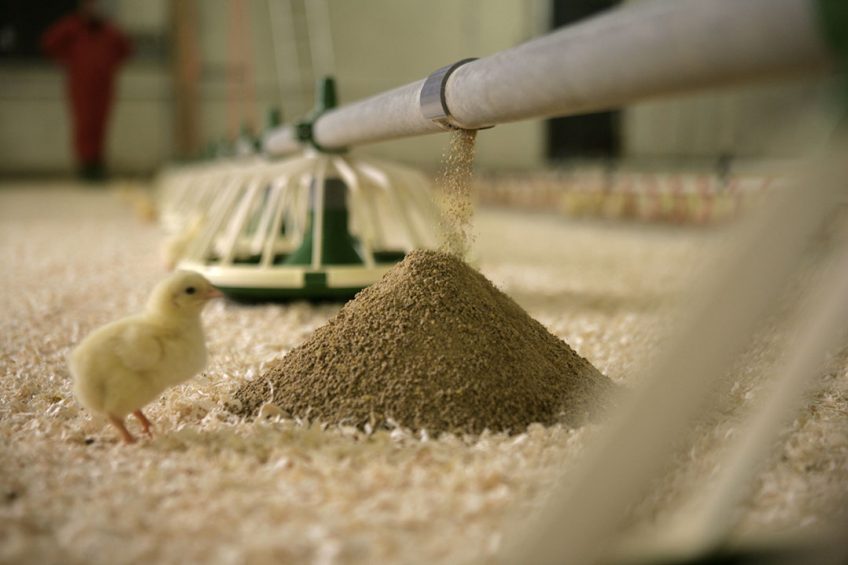Preventing vaccination failure in poultry flocks

Vaccines are used to prevent disease outbreaks when a flock is exposed to field disease organisms. From time to time, vaccination failure occurs when chickens do not develop adequate antibody titre levels or are susceptible to a field disease outbreak following vaccine administration. Poultry World sums up the factors necessary to avoid inadequate vaccine protection.
When a vaccination fails, the quality of the vaccine is typically blamed. Although this is certainly an important consideration, there are other factors that must be evaluated to determine the cause of the failure. A thorough understanding of these factors will help prevent losses associated with vaccination failure.
Maternal immunity
A high level of maternal antibodies in the young chicken may interfere with the multiplication of live vaccines thereby reducing the level of immunity provided. For example, if a chick comes from a breeder hen with high levels of antibody against Gumboro (infectious bursal disease), the chick will typically have high levels of (maternal) antibodies for several weeks. If vaccination is attempted while these antibodies are still present, some of the vaccine viruses will be neutralised and response to the vaccine results will be diminished. On the other hand, delaying vaccination until the maternal antibodies have catabolised may leave the birds susceptible to field challenges.
Feed factors
The presence of mycotoxins in poultry rations can impair the immunity acquired through vaccination and eventually lead to diseases occurring, such as infectious bursal disease virus (IBDV) or Adenovirus. Mycotoxins induce immunosuppression by depressing T or B-lymphocyte activity, impairing macrophage/neutrophil-effector functions, reducing the level of antibodies and the activity of phagocytic cells following vaccination. This can then increase the production of steroids from the adrenal glands which decreases lymphocytes and increases neutrophils. Poultry producers therefore need to keep feed troughs free of mould and control mould growth by using mould inhibitors containing acetic acid, sorbic acid, and propionic acid.

Environmental factors
Under heat stress conditions, corticosterone is released by the hypothalamus–pituitary–adrenal axis. This hormone has been shown to deregulate both the lymphocyte phenotype characteristics and total antibody production in broiler chickens. Chickens exposed to heat stress (38 ± 2°C) over long periods of time will thus have impaired vaccine responses and consequently will be susceptible to pathogenic environmental challenges. Therefore they should be kept in a thermo-neutral environment, especially in the early stages of their life.
If the ammonia level in the house is high (above 100 ppm), this too will have a negative effect on the bird’s ability to produce local immunity, as the cells on the surface of moist membranes are adversely affected. In the absence of local immunity, the bird becomes susceptible to viral diseases, particularly those which proliferate in the respiratory tract.
Ammonia concentration can be controlled by the following management and feeding strategies:
- Management:
Ammonia problems can be alleviated with management practices, such as the use of nipple drinkers, balancing bird density with ventilation facilities and using litter materials with a high water-retention capacity. - Protein nutrition:
Feeding reduced protein diets (2% less) can reduce nitrogen excretion, with ammonia emissions reduced by up to 24%. Further decreases in diet protein levels, however, will require that all essential amino acids are included, preferably in a crystalline form, while ensuring a careful balance of amino acids. - Fibre nutrition:
Fibre provides energy to bacteria in the lower gastrointestinal tract where the bacteria use nitrogen for bacterial protein synthesis that would otherwise have been excreted as uric acid. - Feed additives:
There are some additives that can be added to the diet to sequester or trap ammonia. Among these is zeolite, a type of mineral with a porous or lattice-like structure. When included in the diet, it binds ammonia in the faeces and prevents it from being emitted to the air. - Minimising feed and water waste:
Poultry will waste a significant amount of feed if feeders are overfilled, mounted too low, or poorly designed. In which event, faecal nitrogen may increase by 1.5% for every 1% increase in feed waste, and ammonia emission rates will therefore also increase. Feeders should be designed such that it is difficult for the birds to push the feed out of the feeders. The feeder height should be adjusted so that the top of the feed pan is level with the birds’ neck, with the feed fill level set to only 25% of the feeder pan. Too much water in the house also results in excess ammonia emission and poor air quality. This problem can be alleviated by adopting the nipple drinker system which gives better control over water intake and wastage.
Pesticide pollution
A study was conducted in Egypt to determine the effect of pesticide pollution on the vaccination efficacy of free-range chickens vaccinated against Newcastle disease using Hitchner-B1, Lasota, and inactivated vaccines. Newcastle antibody titres were found to be inversely proportional to the quality and number of pesticide pollutants in the sera, with the disease widely prevalent even on vaccinated farms leading to higher morbidity and mortality (Table 1), probably due to the immuno-toxicity and immunosuppressive effects of pesticides.
Diseases and parasites
The health status of the flock should be checked 1 to 2 days before vaccinating, devoting particular attention to all chronic or sub-clinical pathologies which could either reduce the effect of the vaccination or cause secondary infections spurred by a post-vaccination reaction (mycoplasma Pasteurella, E. coli, coccidiosis mycotoxins, etc.). These potential risks therefore need to be addressed by giving preventive treatment before and after vaccination.
It is not advisable to vaccinate sick birds because the capacity of their immune systems is already diminished. Introducing a live virus vaccine into these birds often results in a reduced immune response and an adverse reaction because, in many cases, they are unable to develop a response even to the milder vaccine virus.
A basic rule for vaccination is always to delay vaccination until the birds are healthy. It is better to skip a vaccine in a diseased flock than to vaccinate in the presence of a concurrent disease.
Parasite infection also affects chickens’ response to vaccination. A study was conducted to investigate the influence of helminths on antibody response after vaccination against Newcastle disease of free-range chickens naturally infected with the parasite Ascaridia galli. The response was compared with vaccinated groups that had been dewormed with fenbendazole and niclosamide. The results showed that the antibody titres rose in the dewormed groups but not in the parasite-infected groups. Among the latter, the synthesis of immunoglobulins was reduced owing to an absolute loss of protein and this might have resulted in a reduced humoral antibody response. Anthelmintic treatment should therefore be done well before vaccination to allow the birds to recover from the helminth infections and hence improve their immune response.
Also read: New protocol for creating vaccines
Points to consider for vaccine handling and administrationLive vaccines may be inactivated due to improper handling or administration. Points to consider include:
 Vaccine preparation needs to be done with the right equipment and in accordance with the issued guidelines. Photo: Ruud Ploeg
|













